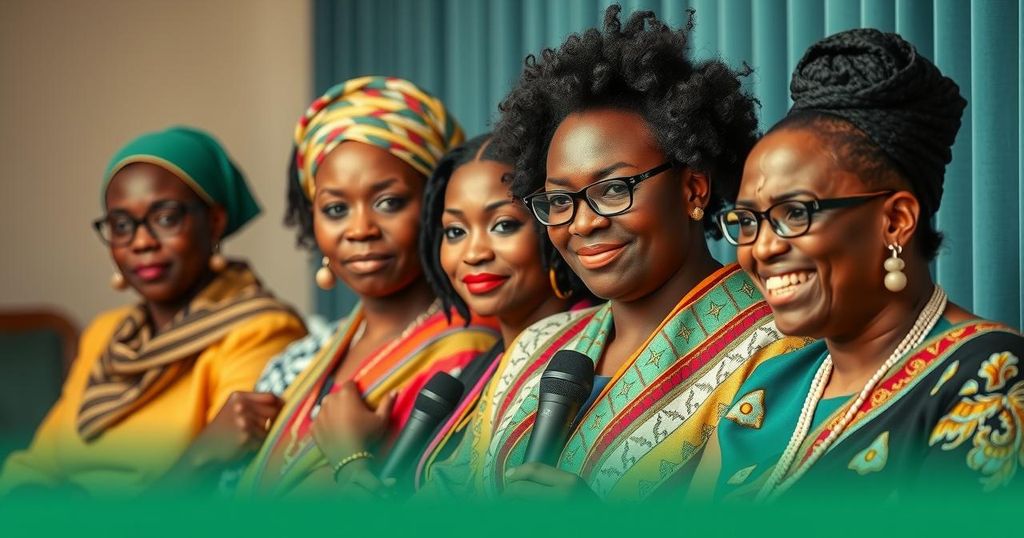Enhancing Women’s Representation in Botswana’s Political Landscape
Botswana’s political landscape exhibits a troubling lack of female representation, with only 28 women contesting in the upcoming elections, resulting in only three securing seats. Despite women making up over half of the eligible voters, they remain underrepresented in governance. Political parties are urged to reform candidate selection to enhance inclusivity and reflect societal needs better.
In the context of Botswana’s upcoming 2024 general elections, a pressing inquiry resonates in public discourse: “bomme ba kae?” (where are the women?). The political landscape reflects a glaring disparity, with only 28 women contesting for parliamentary seats out of 258 candidates, translating to a mere 10.85% representation. Alarmingly, only three women secured seats, resulting in a reduced parliamentary representation of 4.92%, a slight decline from the 5.26% recorded in 2019. This situation is particularly disconcerting considering that women constitute 54% of the eligible voter base.
To foster a truly representative democracy, it is imperative for Botswana’s political parties to confront and rectify the systemic underrepresentation of women within their frameworks, especially concerning candidate selection. This commitment is vital for evolving into inclusive democratic institutions that genuinely reflect the societal fabric. Historical efforts, such as the Southern African Development Community’s introduction of a gender checklist in 2002 aimed at promoting gender equality across electoral processes, highlight the ongoing struggle for equitable representation. Comparatively, several nations have enshrined women’s inclusion and gender parity within their constitutional frameworks, which Botswana could emulate to enhance the political landscape for women.
Addressing the imbalance in female representation will be crucial not only for achieving gender equity in governance but also for the advancement of policies that resonate with the needs and concerns of women in Botswana. Political parties must actively engage in reforms that promote women’s candidacy and participation in elections, thereby laying a foundational groundwork for democratic progression that is reflective of its populace. The time for transformative action is now, as the call for gender parity in political representation grows louder in Botswana’s sociopolitical sphere.
Botswana faces a significant gender disparity in political representation, particularly as it approaches critical elections. Despite women forming the majority of eligible voters, their representation in parliament remains exceedingly low. The political underrepresentation has sparked conversations about the need for systemic reforms within political parties to enhance women’s roles in governance. Historical initiatives from regional bodies emphasize the urgency for gender-focused strategies during elections, highlighting a broader movement towards equality.
In summary, the lack of representation of women in Botswana’s parliament is a pressing concern that requires immediate action from political parties. The current statistics illustrate a need for systemic reforms to promote female candidates and enhance democratic representation. By adopting inclusive practices and learning from successful models in other countries, Botswana has the opportunity to rectify this imbalance and advance towards a more equitable political system that better serves its citizenry.
Original Source: constitutionnet.org




Post Comment